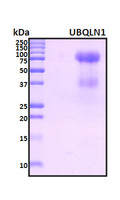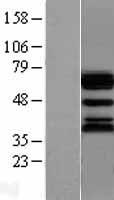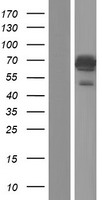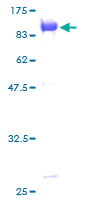order histories, retained contact details for faster checkout, review submissions, and special promotions.
Forgot password?
order histories, retained contact details for faster checkout, review submissions, and special promotions.
Locations
Orders Processing,
Shipping & Receiving,
Warehouse
2 Shaker Rd Suites
B001/B101
Shirley, MA 01464
Production Lab
Floor 6, Suite 620
20700 44th Avenue W
Lynnwood, WA 98036
Telephone Numbers
Tel: +1 (206) 374-1102
Fax: +1 (206) 577-4565
Contact Us
Additional Contact Details
order histories, retained contact details for faster checkout, review submissions, and special promotions.
Forgot password?
order histories, retained contact details for faster checkout, review submissions, and special promotions.
UBQLN1 / Ubiquilin
ubiquilin 1
UBQLN1 / Ubiquilin is an ubiquitin-like protein (ubiquilin) that shares a high degree of similarity with related products in yeast, rat and frog. Ubiquilins contain an N-terminal ubiquitin-like domain and a C-terminal ubiquitin-associated domain. They physically associate with both proteasomes and ubiquitin ligases, and thus are thought to functionally link the ubiquitination machinery to the proteasome to affect in vivo protein degradation. This ubiquilin has also been shown to modulate accumulation of presenilin proteins, and it is found in lesions associated with Alzheimer's and Parkinson's disease. Two transcript variants encoding different isoforms have been found for this gene.
| Gene Name: | ubiquilin 1 |
| Synonyms: | UBQLN1, DA41, HPLIC-1, PLIC-1, Ubiquilin, UBQN, XDRP1, DSK2, PLIC1, Ubiquilin 1, Ubiquilin-1 |
| Target Sequences: | NM_013438 Q9UMX0 Q9UMX0 |








If you do not find the reagent or information you require, please contact Customer.Support@LSBio.com to inquire about additional products in development.









